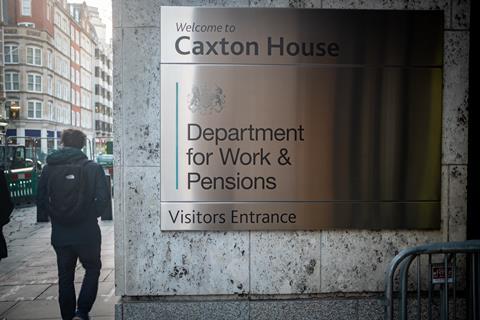
Defined benefit (DB) pension schemes will be able to obtain retrospective sign-off on historic actuarial amendments under legislation planned by the government.
The Department for Work and Pensions (DWP) announced today that it will introduce legislation to address issues that have emerged following the 2023 and 2024 rulings in the Virgin Media v NTL Pension Trustees case.
The rulings meant that any amendments made to pension schemes that were contracted out of the state second pension could be rendered invalid if the trustees could not prove the changes had been approved by an actuary.
Some DB pension schemes have been analysing their records to ensure all paperwork is in order, while others have been taking a ‘wait and see’ approach. Actuaries and lawyers, meanwhile, have been lobbying for government intervention.
The DWP said: “We recognise that schemes and sponsoring employers need clarity around scheme liabilities and member benefit levels in order to plan for the future.
“The government will therefore introduce legislation to give affected pension schemes the ability to retrospectively obtain written actuarial confirmation that historic benefit changes met the necessary standards.
“Scheme obligations will otherwise be unaffected and the government will continue to maintain its robust framework for the funding of defined benefit pension schemes in order to protect people’s hard-earned pensions.”
‘A collective sigh of relief’
Anna Rogers, senior partner at Arc Pensions Law, said the news would bring a “collective sigh of relief” to the DB sector.
She explained that, in many cases, pension schemes had not placed much importance on securing an actuarial confirmation once it was obvious the scheme met the contracting-out test.
“If the legislation allows all schemes to address these issues – hopefully in a pragmatic way – there will be sighs of relief all around.”
Sam Jenkins, LCP
“The DWP has just announced that schemes will be able to get this confirmation retrospectively,” Rogers said. “We assume it will be done by using the existing power to make regulations about contracting out glitches. It’s been done before.
“There will still have to be a process and we await the details. It may not be easy to establish on the facts whether the test was met at the time, which could be the best part of 30 years ago.
“But at least the door is now open to a sensible solution that means DB schemes can get on with doing what they are supposed to do – namely providing the promised benefits to members.”
Sam Jenkins, partner at LCP, added: “The uncertainty raised by last year’s judgment has caused headaches for schemes in a variety of situations – from those considering insured buyout to those considering run-on strategies – given the lack of clarity it gave to a scheme’s legal obligations.
“If the legislation allows all schemes to address these issues – hopefully in a pragmatic way – there will be sighs of relief all around.”
Faye Jarvis, a member of the legislation committee at the Society of Pension Professionals who led the organisation’s work on this issue, said: “We are naturally very pleased that, by working in collaboration, industry and the government have been able to find a workable solution to an unexpected problem that was causing the pensions industry, and many savers, considerable difficulties both in the public and private sectors.”

























